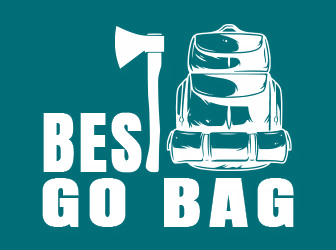If you’re like most people, finding places in your home to store items you don’t use every day can be a problem.
We all accumulate a lot of stuff through the years. Including many things we don’t want to get rid of because every once in a while we need them. Or we want to give them away someday. But because we don’t use them often, we don’t want them cluttering our living spaces.
Many of these items end up in closets, basements, garages, and laundry rooms. In most cases, that’s fine.
But other than basements, some of those areas can get pretty warm. Especially garages. And certain items should definitely not be stored in an area where temperatures get too high.
High temps are a formidable enemy
Today I want to list 8 items you should not store in the heat. Each of them can be compromised or even destroyed by higher temperatures.
Canned food. It might seem like food inside a sealed can would be protected from outside elements, but that’s just not true. Temperatures exceeding 85° Fahrenheit can spoil food inside a can. Dampness inside a garage, for example, can cause cans to rust.
Wooden furniture. Perhaps you have old wooden furniture you want to gift to adult children or grandchildren, but they’re not quite ready for it yet. So, you keep it in the garage for now. Not a good idea. Temperature and humidity changes can make the wood expand and contract until it becomes warped.
Electronics. Heat and humidity, found in places such as garages, could render electronics such as PCs, printers, and gaming consoles useless. Their internal printed circuit boards will get fried. Heat-loving insects might also venture inside those items and damage them.
Clothing and bedding. If you keep either of these items in an area that gets a lot of heat, they’d better be in secure, temperature-proof containers. Otherwise, heat, humidity, and insects will produce considerable damage, including mold and mildew.
Spare refrigerator. This appliance does its best work when it’s in a climate-controlled room, generally between 65° and 78°. When stored in the heat, it will have to work overtime to keep contained items cold or frozen. And that means a higher-than-normal electric bill.
Photographs and records. As we age, there are few items we treasure more than our memories. And many of those memories are contained in photo albums. Keep them in a cool, dry, and dark place. In a hot area such as a garage, they can fade and get stuck together. Record albums warp in the heat. Books deserve a better home too.
Pet food. If someone is thinking, “It’s just a cat or dog. Who cares where their food is kept?” they probably shouldn’t own a pet. Warm temperatures can cause all kinds of food to spoil – including dog and cat food – so store bags of pet food at normal room temperature and keep them tightly sealed.
I saved one of the most important things to not store in the heat for last. It’s…
Batteries. As with food, water, and other essential items, batteries can go bad if not stored properly. It’s crucial to keep your batteries in the best possible shape. You never know when you’re going to desperately need them. Corrosion can occur when they’re stored in high temps. That can lead to dangerous leakage or even an explosion.
Where should I keep batteries?
So, if we shouldn’t store batteries in an area that experiences heat, where should we keep them? Glad you asked.
You’ve probably heard the old wives’ tale about extending battery life by storing batteries in your freezer. Perhaps you’re already doing that. This is something battery and survival experts have tested.
The majority has determined that storing batteries in a freezer does not extend their life. And in fact, it might make them less effective.
In storage, make sure opposing ends of batteries are not touching one another, and don’t store batteries with other metal objects. Keep the plastic caps on 9V batteries until they are in use.
And make sure batteries won’t be punctured or crushed while in storage. Keep them inside a container that cannot be smashed or otherwise damaged.
Energizer & Duracell chime in
Energizer officials state that storage in a refrigerator or freezer is not required or recommended for batteries produced today. Cold temperature storage can harm batteries if condensation results in corroded contacts, or label or seal damage due to extreme temperature storage.
To maximize performance and shelf life, store batteries at normal room temperatures (68° to 78°F) with moderated humidity levels. When stored at room temperature, cylindrical alkaline batteries have a shelf life of 5 to 10 years and cylindrical carbon zinc 3 to 5 years.
Lithium cylindrical types can be stored from 10 to 15 years. Prolonged storage at elevated temperatures will shorten storage life.
Duracell officials recommend storing batteries in original packaging, in a dry place at normal room temperature until ready to use.
It’s also a good idea to not mix old and new batteries, or batteries of different brands or types (for example heavy-duty zinc chloride batteries and alkaline batteries). Older batteries can drain energy from newer ones.
You want to get the longest life possible out of your batteries. How you store them greatly factors into their life expectancy. Keep them out of the heat.


